This post has not been edited by the GamesBeat staff. Opinions by GamesBeat community writers do not necessarily reflect those of the staff.
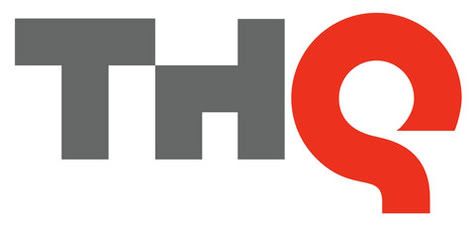
(Full disclosure : The following is a revision of content from my blog discussing several of the same points with additional material. I also hold no stock in any of the companies discussed and do not plan to initiate any positions for them in the next 72 hours.)
THQ could have had a better New Years. There has been a lot of news floating around THQ's fortunes as of late and not all of it good. In two months, THQ's fortunes have gone from being relatively under the radar to being front page news everywhere thanks to rumors and hearsay about being put up "for sale" or having canceled its 2014 lineup.
Their financial situation has created the picture of a struggling company that remains profitable – just not profitable enough according to the figures that analysts much smarter than me have put together.
But do we have anything really to worry about? Does the infamous letter purportedly from an ex-THQ staffer have any real meat to its bones? What did their latest conference call have to say about their future? That's what this article hopes to explore.
The Letter
A letter allegedly written by a former THQ employee made the rounds in January leveling the finger for blame on CEO Brian Farrell and the board based on “facts that are public knowledge”, cites the declining price of its stock, and mentions resistance to uDraw's debut on the Xbox 360 and the PS3.
The stock price decline, at least, can be confirmed via the same financial records that THQ is required to post as a publicly traded company. That, and uDraw's miserable performance.
Let's look at recent events. The stock closed December 7th with a price of $1.46. THQ later posted Brian Farrell's admission that uDraw sales had stumbled forcing a downward revision of its sales guidance for the quarter ending that month by 25%. In other words, they were shaving 25% from their overall sales expectations for the quarter. In their Q3 2013 earnings call, that turned out to be much worse than it initially indicated.
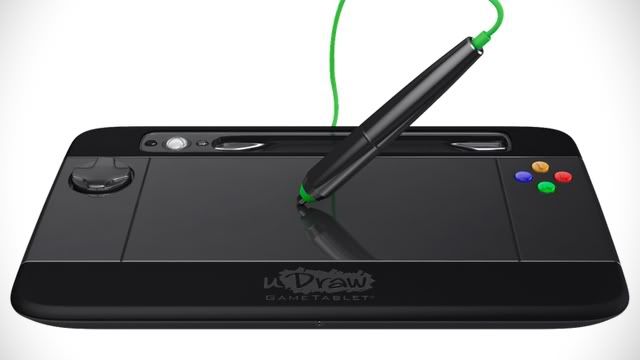 The next day, the stock fell as investors fled and closed out at $0.90. It would remain underwater for the next thirty days prompting NASDAQ officials in January to warn THQ that it would have 180 days in which to come back above $1.00 or face delisting. This is not specific to THQ. Every company is subject to the same rules on the exchange.
The next day, the stock fell as investors fled and closed out at $0.90. It would remain underwater for the next thirty days prompting NASDAQ officials in January to warn THQ that it would have 180 days in which to come back above $1.00 or face delisting. This is not specific to THQ. Every company is subject to the same rules on the exchange.
The oft quoted Michael Pachter of Wedbush Securities had also stated his lack of confidence in THQ's ability to maintain profitability the day after THQ's Q3 guidance revision citing conditions that would lead to a “crash crunch before mid-year 2012, unless it is able to generate solid profits early in its fiscal 2013”. Analysts Cowen & Co. downgraded the stock from “Outperform” to “Neutral” a day before Farrell's announcement based on seeing how poorly uDraw was doing thanks in part to the deep discounts retailers were giving it.
But the stock has been sliding for years prior to uDraw. It reported solid, growing sales, in its Q2 report for 2011 ending in September, largely due to the success of WH40K's Space Marine, yet the stock continued to lose ground reducing its market cap. In three years, the stock has lost over 80% of its value part of it due to the declining sales of its kid's titles.
Revenues continue to be high (though not quite as high as its 2007 high of over a billion). As lopsided as having a small cap and large revenues look, analysts much smarter than me have seen similar situations as a sign that the company has a significant amount of debt on its sheets.
To look at a more recent example, Eastman Kodak had reported over $7.19 billion dollars in revenue before filing for Chapter 11 bankruptcy where it was revealed that they were on the hook for $6.8 billion. Their market cap was also much smaller at $97 million. But that by itself isn't enough to predict the health of a company.
There's also a company's debt-to-equity ratio which basically says how much debt a company has leveraged against its equity. Having a high number here basically says that you owe a lot of money on every dollar you have. Right now, THQ's debt-to-equity ratio stands at 1.36 – a staggering value. Again, by itself, it's not the only indicator that there's a problem.
To see why, Ford also has a high debt-to-equity ratio at 1.92 but it also makes more money at the same time to offset that debt thanks to a largely positive profit margin. That's ideally how it's supposed to work though it also carries a significant amount of risk if things go wrong. In THQ's case, declining revenues over its now-dead kid's division and rising debt over the long term are particularly discouraging signs based on the above and the latest data to come out from their Q3 2012 report.
The Competition
In contrast, THQ's competitors maintain a decent level of financial health. Let's look at EA and Activision.
EA and Activision both report high revenue and reasonably stable stock performance over the last five years. Peeking at their charts on sites such as NASDAQ, anyone can come to the same conclusion. Hitting the billion dollar mark has almost become routine for these guys.
Part of the reason is because they have cultivated a library of popular games over several years. Activision's World of Warcraft has become a monthly cash cow while Call of Duty continues to break sales records. EA's diverse sports portfolio, online efforts, and general library also continue to float its fortunes every quarter. Activision also has their exclusive contract with Bungie waiting in the wings.
More importantly, neither are saddled with the kind of debt that THQ appears to be loaded with and have apparently made smarter decisions regarding their overall direction. And for reference, as of this writing, EA's debt to equity ratio stands at 0.21 while Activision's is at 0.00 giving both plenty of breathing room.
The Games
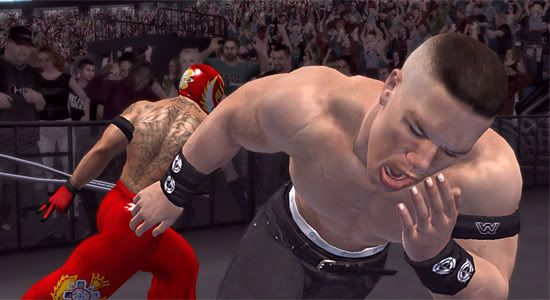 THQ's own library isn't anything to sneeze at, either, but as popular as Darksiders, Metro 2033, UFC, and WWE are, they don't post the kind of numbers that its rivals do. That should in no way imply that they're all bad games – just look at Ubisoft's Beyond Good & Evil – only that their commercial success hasn't quite yielded the same gilded results that properties for either Activision or EA have.
THQ's own library isn't anything to sneeze at, either, but as popular as Darksiders, Metro 2033, UFC, and WWE are, they don't post the kind of numbers that its rivals do. That should in no way imply that they're all bad games – just look at Ubisoft's Beyond Good & Evil – only that their commercial success hasn't quite yielded the same gilded results that properties for either Activision or EA have.
Let's consider Homefront. It made a big push to become the next big FPS property on the market in 2011 and their efforts at promoting it at 2010's E3 and elsewhere have shown that they weren't above risking the occasional marketing stunt (http://www.1up.com/news/homefront-promotional-stunt-fine) to sell the idea that it could slip into the same battle boots as its peers. Unfortunately, mediocre reviews and deep discounts shortly afterward haven't helped.
Blockbuster hit, Saint's Row: The Third, had been reported having 3.8 million units shipped and is expected to pull in five to six million units over its lifetime. Those aren't bad numbers, but a rival like EA does the same thing across multiple titles. And for a company like THQ, they can't afford to hang their hat on as few games as Activision can.
Stepping back at bit, EA's Q1 2011 report noted that Bad Company 2 topped 9 million sales (which included digital downloads) since its release in 2010. By the same quarter, FIFA 11 sold nearly 15 million units, a figure that includes digital and mobile downloads. The list goes on especially when you factor in titles such as Mass Effect and Dead Space 2.
Activision's slate for the same quarter primarily revolved around two titles – World of Warcraft and Call of Duty. While not as diverse as EA's, or even THQ's library, they still made buckets of money off of both properties even if you only consider Black Ops. And now they have Modern Warfare 3 in their corner. As artistically dead as some might consider the game, from a commercial standpoint, it won't be surprising for anyone to expect it to boost Activision's own quarterly report later this month.
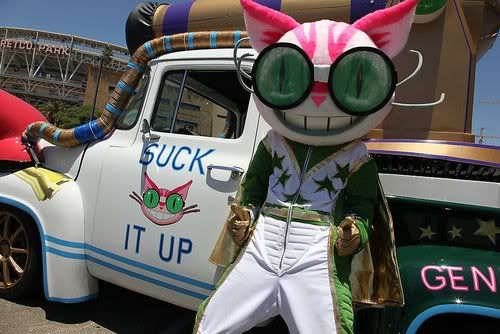 For THQ's Q1 2012, they cited disappointing sales of Red Faction: Armageddon which would later lead to the series' shelving. Their licensed kid's titles also displayed weakness – a situation that would eventually lead to its exit from the category in January of this year. Q2 was a little different with the strong performance of Space Marine and decent sales across the board, but nowhere near the kind of blockbuster situations that its peers seemingly celebrate on a quarterly basis.
For THQ's Q1 2012, they cited disappointing sales of Red Faction: Armageddon which would later lead to the series' shelving. Their licensed kid's titles also displayed weakness – a situation that would eventually lead to its exit from the category in January of this year. Q2 was a little different with the strong performance of Space Marine and decent sales across the board, but nowhere near the kind of blockbuster situations that its peers seemingly celebrate on a quarterly basis.
The aforementioend letter also cites a lack of marketing for any of its properties and I can't speak to that. I will confess, however, that I didn't even care about uDraw for the Xbox 360 or the PS3 until all of this broke over over THQ in January.
uDraw was a major hit on the Wii in 2010, yet it faltered in 2011 when it expanded into the Xbox 360 and PS3 spaces, spaces normally reserved for titles such as Modern Warfare, Mortal Kombat, Mass Effect, and Madden.
The Closures
THQ's Q3 2012 conference call hinted at becoming a much leaner company by 2013's fiscal year and their recent studio closures and redundancies seem to be following that pattern.
In 2011, THQ went on a binge of studio closures and “redundancies” (i.e. layoffs). In the gaming industry, this isn't as unusual as it sounds as devs get shuffled and studios seek the next project that will keep themselves above water especially in light of the current economy.
In January of that year, its wireless division was restructured leading to 100 laid off workers and the closure of offices. Kaos Studios, the creators of Homefront, were closed in June along with another studio (THQ Digital Warrington). Later, it was revealed that Homefront would be developed by Crytek for 2014.
In August, it was announced that THQ Studio Australia and Blue Tongue were shuttered. THQ Digital Phoenix was also closed leaving THQ with only a small handful of devs.
In their Q3 2012 conference call, THQ confirmed that they would refocus on their five core studios (THQ Montreal with Patrice Desilets' project, Relic, Volition, Vigil, and San Diego) along with a number of external devs like Crytek, Turtle Rock Studios, Obsidian, and Itagaki's Valhalla.
Shadows of Interplay and Midway
It's hard not to draw parallels between THQ and companies such as Interplay and Midway, two companies that had portfolios of what had been thought to be winning titles only to fold later. It's also quite possible that THQ can still pick itself up and engineer a turnaround.
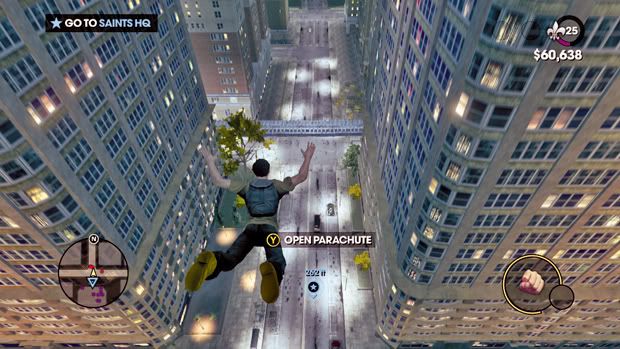 But is THQ positioning itself for a buyout? THQ vehemently denies canceling its 2014 lineup or that it's courting potential suitors for its properties. Instead, it looks like they're going to be trimming themselves down instead which could lead to more downsizing in the future following the pattern set by many other companies in the same position.
But is THQ positioning itself for a buyout? THQ vehemently denies canceling its 2014 lineup or that it's courting potential suitors for its properties. Instead, it looks like they're going to be trimming themselves down instead which could lead to more downsizing in the future following the pattern set by many other companies in the same position.
In January, SEC filings confirmed 240 layoffs at the company over the course of several months with eye to completion by September 30, 2012.
This also includes a 50% reduction of CEO Brian Farrell's salary for a year which also includes a reduction in any potential lump sum severance for him from 3x whatever his highest bonus was to only 1x.
The Q3 Conference Call
During their Q3 2012 earnings call, THQ confirmed that they would be exiting the uDraw business and work to sell what remains of the 1.4 million units still in inventory that haven't shipped yet. At an est. worth of $80 million, it's a brutally expensive lesson.
They had also taken a loss on the discounts that the units in circulation have been subjected to and stated that their quarterly earnings would have been more than double without uDraw to illustrate its impact. In addition, they had also mentioned was that their sales guidance for fiscal 2013 would be half of what will be for 2012 which was also lowered as they pursue their restructuring plans.
Game wise, the big highlights were Saint's Row the Third and WWE 12 (which shipped 2 million units). Their UFC sales, though, are slightly below their expectations.
One thing that the letter above mentioned was how poorly THQ markets their product. Interestingly enough, marketing was mentioned in regards to Darksiders 2 with and eye to doubling what they had spent on the first game for its sequel to get the word out. Hopefully this will get more people excited about it.
Getting your Cosplay On
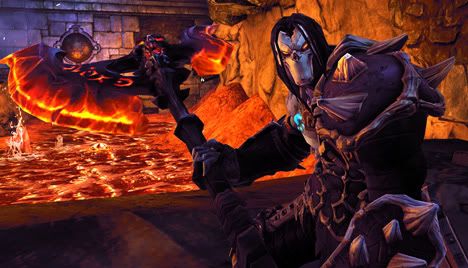 With a stable of extremely talented developers behind it, the only thing that THQ appears to wants to do at this point is to focus on their “core” properties while trimming down their operations.
With a stable of extremely talented developers behind it, the only thing that THQ appears to wants to do at this point is to focus on their “core” properties while trimming down their operations.
I'm still looking forward to the new Darksiders, can't wait to get down and dirty in Moscow again with Metro Last Light, and look forward to hearing more on South Park's first RPG by Obsidian. And Dark Millennium isn't canceled, though THQ has said that they're looking at it "realistically" and are trying to find someone to partner up with which makes sense. MMORPG development is not cheap, especially considering the competition or THQ's current situation.
But will it be enough? In listening to their conference call and the questions being asked, they admit to having made mistakes though it's hard not to have some lingering concern over how much worse the picture seems in certain respects.
On the other hand, the world has also proven that it's got the hunger for cosplay mixers serving up bullets and rockets with scary Russians lurking in subway tunnels just below. THQ's story doesn't look to be over yet.
Not by a Genki mile.
Yet at the same time, it's hard not to be concerned and wonder whether THQ will still be around to publish the next Saint's Row. I certainly hope so. The world always has a need for more cosplay mixers serving guns and rockets.Is THQ really in trouble?
(Full disclosure : The following is a revision of content from my blog discussing several of the same points with additional material. I also hold no stock in any of the companies discussed and do not plan to initiate any positions for them in the next 72 hours.)
THQ could have had a better New Years. There has been a lot of news floating around THQ's fortunes as of late and not all of it good. In two months, THQ's fortunes have gone from being relatively under the radar to being front page news everywhere thanks in part to a tweet by “armchair” analyst, Peter Skerritt, that said they were positioning themselves for a buyout and had canceled their 2014 lineup.
Their financial situation has created the picture of a struggling company that remains profitable – just not profitable enough according to the figures that analysts much smarter than me have put together.
But do we have anything really to worry about? Does the infamous letter purportedly from an ex-THQ staffer have any real meat to its bones? That's what this article hopes to explore.
The Letter
A letter allegedly written by a former THQ employee made the rounds in January leveling the finger for blame on CEO Brian Farrell and the board based on “facts that are public knowledge”, cites the declining price of its stock, and mentions resistance to uDraw's debut on the Xbox 360 and the PS3.
The stock price decline, at least, can be confirmed via the same financial records that THQ is required to post as a publicly traded company. That, and uDraw's miserable performance.
Let's look at recent events. The stock closed December 7th with a price of $1.46. THQ later posted Brian Farrell's admission that uDraw sales had stumbled forcing a downward revision of its sales guidance for the quarter by 25%. In other words, they were shaving 25% from their overall sales expectations for the quarter.
The next day, the stock fell as investors fled and closed out at $0.90. It would remain underwater for the next thirty days prompting NASDAQ officials in January to warn THQ that it would have 180 days in which to come back above $1.00. This is not specific to THQ. Every company is subject to the same rules on the exchange.
Michael Pachter of Wedbush Securities had also stated his lack of confidence in THQ's ability to maintain profitability the day after THQ's Q3 guidance revision citing conditions that would lead to a “crash crunch before mid-year 2012, unless it is able to generate solid profits early in its fiscal 2013”. (http://gamepolitics.com/2011/12/08/thq-predicts-lower-sales-q3-blames-udraw). Analysts Cowen & Co. downgraded the stock from “Outperform” to “Neutral” a day before Farrell's announcement based on seeing how poorly uDraw was doing thanks in part to the deep discounts retailers were giving it (http://www.forbes.com/sites/ericsavitz/2011/12/06/thq-slides-cowen-downgrades-sees-dec-qtr-eps-miss/).
But the stock has been sliding for years prior to uDraw. It reported solid, growing sales, in its Q2 report for 2011 ending in September, largely due to the success of WH40K's Space Marine, yet the stock continued to lose ground reducing its market cap. In three years, the stock has lost over 80% of its value.
Revenues continue to be high at around $779 million (though not quite as high as its 2007 high of over a billion). As lopsided as having a small cap and large revenues look, analysts have seen similar situations as a sign that the company has a significant amount of debt on its sheets.
To look at a more recent example, Eastman Kodak had reported over $7.19 billion dollars in revenue before filing for Chapter 11 bankruptcy where it was revealed that they were on the hook for $6.8 billion. Their market cap was also much smaller at $97 million. But that by itself isn't enough to predict the health of a company.
There's also a company's debt-to-equity ratio which basically says how much debt a company has leveraged against its equity. Having a high number here basically says that you owe a lot of money on every dollar you have. Right now, THQ's debt-to-equity ratio (http://ycharts.com/companies/THQI/debt_equity_ratio) stands at 1.36 – a staggering value with a negative profit margin. Again, by itself, it's not the only indicator that there's a problem.
To see why, Ford also has a high debt-to-equity ratio at 1.92 but it also makes more money at the same time to offset that debt thanks to a largely positive profit margin. That's ideally how it's supposed to work though it also carries a significant amount of risk if things go wrong. In THQ's case, declining revenues over its now-dead kid's division and rising debt over the long term are particularly discouraging signs based on the above.
The Competition
In contrast, THQ's competitors maintain a decent level of financial health. Let's look at EA and Activision.
EA and Activision both report high revenue and reasonably stable stock performance over the last five years. Peeking at their charts on sites such as NASDAQ, anyone can come to the same conclusion. Hitting the billion dollar mark has almost become routine for these guys.
Part of the reason is because they have cultivated a library of popular games over several years. Activision's World of Warcraft has become a monthly cash cow while Call of Duty continues to break sales records. EA's diverse sports portfolio, online efforts, and general library also continue to float its fortunes every quarter. Activision also has their exclusive contract with Bungie waiting in the wings.
More importantly, neither are saddled with the kind of debt that THQ appears to be loaded with and have apparently made smarter decisions regarding their overall direction. And for reference, as of this writing, EA's debt to equity ratio stands at 0.21 while Activision's is at 0.00 giving both plenty of breathing room.
The Games
THQ's own library isn't anything to sneeze at, either, but as popular as Darksiders, Metro 2033, UFC, and WWE are, they don't post the kind of numbers that its rivals do. That should in no way imply that they're all bad games – just look at Ubisoft's Beyond Good & Evil – only that their commercial success hasn't quite yielded the same gilded results that properties for either Activision or EA have.
Let's consider Homefront. It made a big push to become the next big FPS property on the market in 2011 and their efforts at promoting it at 2010's E3 and elsewhere have shown that they weren't above risking the occasional marketing stunt (http://www.1up.com/news/homefront-promotional-stunt-fine) to sell the idea that it could slip into the same battle boots as its peers. Unfortunately, mediocre reviews and deep discounts shortly afterward haven't helped.
Blockbuster hit, Saint's Row: The Third, had been recently reported in having 3.8 million units shipped and is expected to pull in five to six million units over its lifetime (http://www.industrygamers.com/news/saints-row-the-third-shipments-hit-38-million-as-thq-realigns/). Those aren't bad numbers, but a rival like EA does the same thing across multiple titles. And for a company like THQ, they can't afford to hang their hat on as few games as Activision can.
Stepping back at bit, EA's Q1 2012 report (http://www.businesswire.com/portal/site/home/email/alert/?ndmViewId=news_view&newsLang=en&newsId=20110726007037) noted that Bad Company 2 topped 9 million sales (which included digital downloads) since its release in 2010. By the same quarter, FIFA 11 sold nearly 15 million units, a figure that includes digital and mobile downloads. The list goes on especially when you factor in titles such as Mass Effect and Dead Space 2.
Activision's slate for the same quarter primarily (http://investor.activision.com/releasedetail.cfm?ReleaseID=575495) revolved around two titles – World of Warcraft and Call of Duty. While not as diverse as EA's, or even THQ's library, they still made buckets of money off of both properties even if you only consider Black Ops. And now they have Modern Warfare 3 in their corner. As artistically dead as some might consider the game, from a commercial standpoint, it won't be surprising for anyone to expect it to boost Activision's own quarterly report later this month.
For THQ's Q1 2012 (http://investor.thq.com/phoenix.zhtml?c=96376&p=irol-newsArticle&id=1589772), they cited disappointing sales of Red Faction: Armageddon which would later lead to the series' shelving. Their licensed kid's titles also displayed weakness – a situation that would eventually lead to its exit from the category in January of this year. Q2 was a little different with the strong performance of Space Marine and decent sales across the board, but nowhere near the kind of blockbuster situations that its peers seemingly celebrate on a quarterly basis.
The aforementioend letter also cites a lack of marketing for any of its properties and I can't speak to that. I will confess, however, that I didn't even care about uDraw for the Xbox 360 or the PS3 until all of this broke over over THQ in January.
uDraw was a major hit on the Wii in 2010, yet it faltered in 2011 when it expanded into the Xbox 360 and PS3 spaces, spaces normally reserved for titles such as Modern Warfare, Mortal Kombat, Mass Effect, and Madden. THQ cited market research as showing that there was an audience there for its peripheral, but why did it miss the most obvious facts about them?
Despite the 1.2 million shipped units that THQ's Q3 reports for 2011 (http://investor.thq.com/phoenix.zhtml?c=96376&p=irol-newsArticle&id=1523470), there is no mention of how many actually sold through. Based on December's downward revision noted earlier, it's probably safe to say that it was much lower than what was expected despite the report's rosy language.
The Closures
In 2011, THQ went on a binge of studio closures and “redundancies” (i.e. layoffs). In the gaming industry, this isn't as unusual as it sounds as devs get shuffled and studios seek the next project that will keep themselves above water especially in light of the current economy. At the same time, at least in THQ's case, it also seems pretty haphazard.
In 2009, Big Huge Games was sold off to 38 Studios (http://www.gamasutra.com/php-bin/news_index.php?story=23775) which is now readying Kingdoms of Amalur: The Reckoning for release under EA's label. Big Huge Games faced the axe from THQ if it “couldn't find a buyer”.
In January of that year, its wireless division was restructured leading to 100 laid off workers and the closure of offices (http://moconews.net/article/419-thq-restructuring-hits-wireless-focus-will-switch-to-smartphones-100-em/). Kaos Studios, the creators of Homefront, were closed in June along with another studio (THQ Digital Warrington). Later, it was revealed that Homefront would be developed by Crytek for 2014.
In August, it was announced that THQ Studio Australia and Blue Tongue were shuttered. THQ Digital Phoenix was also closed.
Shadows of Interplay and Midway
It's hard not to draw parallels between THQ and companies such as Interplay and Midway, two companies that had portfolios of what had been thought to be winning titles only to fold later. It's also quite possible that THQ can still pick itself up and engineer a turnaround, but as the layoffs show, it's going to be a long and painful road.
Is Peter Skerritt right? Is THQ positioning itself for a buyout? THQ vehemently denies canceling its 2014 lineup or that it's courting potential suitors for its properties. But what if they were?
Potential buyers are going to have to deal with THQ's debt obligations. If THQ is heading in that direction, they might decide to sell off parts of itself instead such as its licenses and IPs – much like how Kodak is trying to do with its patent portfolio and which both Interplay and Midway had also done to try and satisfy creditors.
But prior to any of that, THQ could also follow a pattern of downsizing which many companies have done in order to try and reduce costs to keep themselves going. As many companies have shown, especially in recent years during the recession, downsizing is usually the first step in attempting to maintain profitability.
In January, SEC filings (http://investor.thq.com/phoenix.zhtml?c=96376&p=irol-SECText&TEXT=aHR0cDovL2lyLmludC53ZXN0bGF3YnVzaW5lc3MuY29tL2RvY3VtZW50L3YxLzAwMDA4NjU1NzAtMTItMDAwMDA1L3htbA%3d%3d) confirmed 240 layoffs at the company over the course of several months with eye to completion by September 30, 2012. This also includes a 50% reduction of CEO Brian Farrell's salary for a year which also includes a reduction in any potential lump sum severance for him from 3x whatever his highest bonus was to only 1x.
At the same time, I also think that it's very unlikely that Brian Farrell and the board are going to lose their jobs in the near future unless entire divisions shut down as they did with their kid's games. Could this lead to an auction of assets? It's one way to get there, but it's no means a guarantee that it is actually going to happen.
THQ is in a rough spot right now, even with a stable of extremely talented developers behind it. But whether THQ can harness that creativity to focus on their “core” properties as they propose is still up in the air. This year will see a light slate from the company, but one in which I expect to play many games from.
I'm looking forward to the new Darksiders, can't wait to get down and dirty in Moscow again with Metro Last Light, and look forward to hearing more on WH40's MMO. South Park's first RPG by Obsidian is also due out near the end of this year.
Yet at the same time, it's hard not to be concerned and wonder whether THQ will still be around to publish the next Saint's Row. I certainly hope so. The world always has a need for more cosplay mixers serving guns and rockets.
